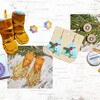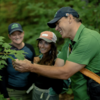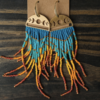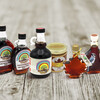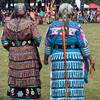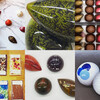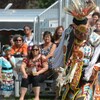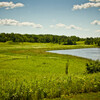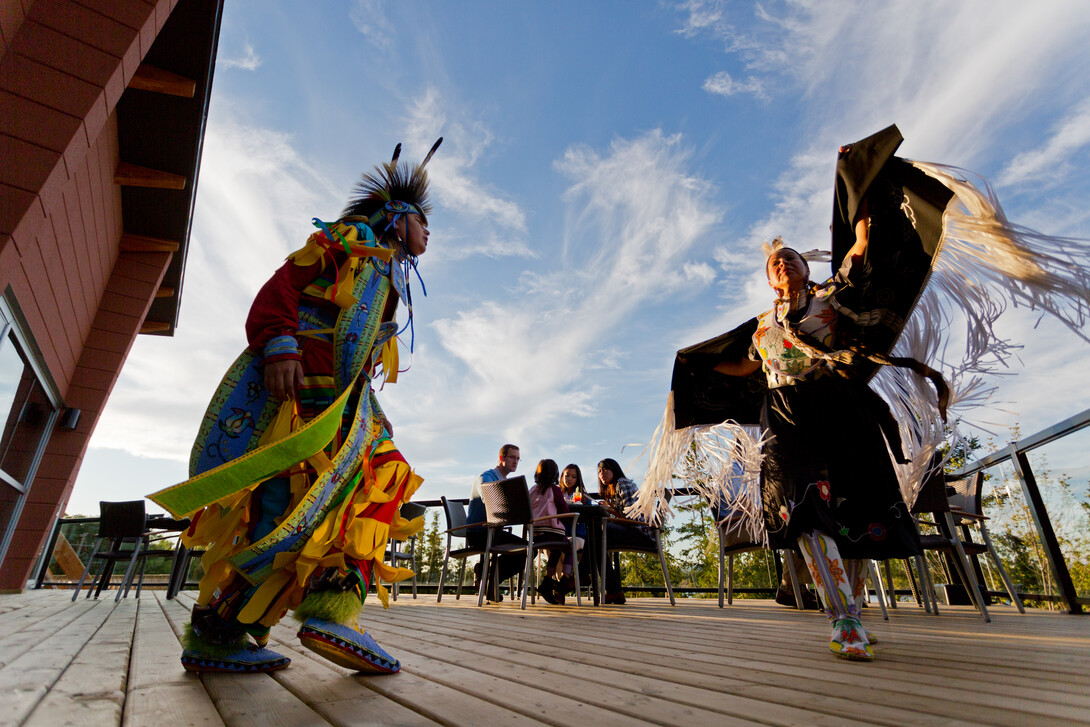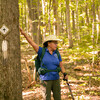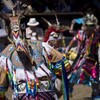
Think Outside the Teapot
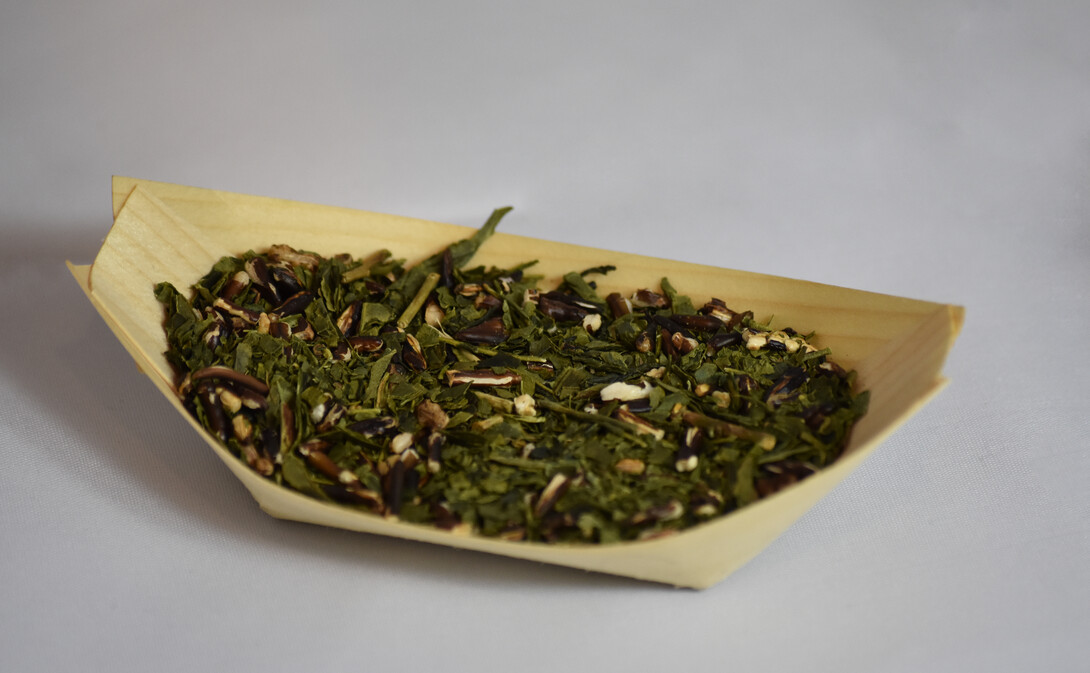
Tea Horse, a Thunder Bay-based company, is blazing a trail in the tea world with their line of wild rice teas.
Self-proclaimed tea enthusiasts Denise Atkinson, an Anishnaabe entrepreneur, and Marc Bohémier began selling high-end premium teas across Canada and the U.S. in 2017.
The company found their niche, however, when Atkinson noticed that one of the tea samples from their suppliers, a Japanese twig tea called Kukicha, reminded her of wild rice. That inspired her to brew locally harvested wild rice like a tea, and that revelation spawned their wild rice tea offerings.
A Traditional Indigenous Ingredient Takes Centre Stage
Their fusion of Indigenous and Asian teas aims to showcase the versatility of wild rice, the “amazing original North American superfood,” they call it. “It's kind of an overused term in the food world but it really is, it's a gluten-free super-high protein, full of great nutrients like iron and phosphates,” he says.
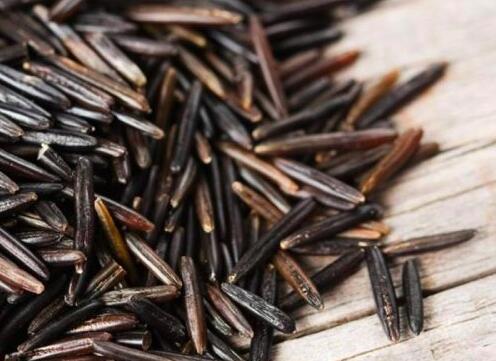
Tea Horse wild rice is sustainably harvested and sourced from Indigenous growers in Northern Ontario.
“Around the world, Indigenous people are the caretakers of tea and plants,” says Bohémier. “There’s a relationship between the water and tea and Denise has embraced this part of Indigenous women’s role as water keepers and caregivers.”
From the Red Rock First Nation in Northern Ontario, Atkinson talks about how important tea has been to her family, her aunties, sisters, and cousins. “Sitting together, drinking tea would bring us together. We’d be in the bush, picking blueberries, and we’d have a pot of tea on an open fire,” recalls Atkinson. “My grandmother would make Labrador tea and use herbs in the blueberry patch. It reminds me of home, family, the strength of our women and it’s really important.”
She recalls childhood memories of sleepovers with her Ojibway grandparents, and early every morning her grandfather would prepare a cup of really sweet, black tea for her grandmother. “I remember getting to drink some and it was such an exciting time.”
Signature Manoomin Blends Have Proven a Hit
Tea Horse Tea has three wild rice tea offerings. One is named Manoomin Cha—"manoomin" means the good grain in Ojibway, and “cha” is tea in Mandarin and Cantonese—and is a green Japanese tea blended with their roasted wild rice. They describe it as having the fresh grassiness of green tea with a roasted nuttiness.

Manoomin Cha Dark Roast takes dark roasted green tea, Hojicha, sourced directly from Japan, and blends it with a roasted wild rice. It has a mocha taste that is a coffee alternative. Their last wild rice option is a roasted wild rice that is infused as a beverage, called Manoominaaboo Tisane, which translates loosely as wild rice water. The caffeine-free tea is one of their best sellers among Southeast Asian customers, as it's reminiscent of the roasted barley tea consumed in Korea and Taiwan.
No one else in the tea world is doing what they’re doing (their blends are trademarked and names are copyrighted), blending teas with wild rice, creating a bold, unique flavour. “We think that our wild rice teas pair well with traditional Indigenous foods like salmon, fiddleheads, wild meats,” says Bohémier.
“We've been working really hard at creating the right flavor profiles,” he adds, mentioning how secret they are about their blends. “We're going to be like Colonel Sanders, without secret herbs and spices but in the way we blend it, and the proportions and ratios of how we blend it.”
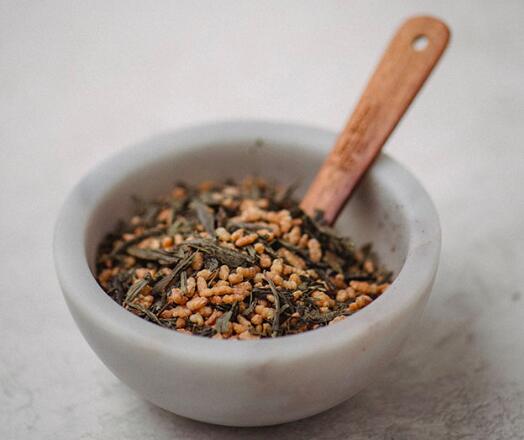
Blends are trademarked, with blending techniques and ingredient ratios a carefully guarded secret, according to Bohémier.
They’re currently working on a new spice blend, called Manoomin Chai, which would be similar to Masala Chai but with the company’s roasted wild rice.
Responsible Entrepreneurship
It’s important for the company, which is also a Certified Aboriginal Business with the Canadian Council for Aboriginal Business, to work with Indigenous people as much as possible. Anishnaabe artist Kevin Belmore in Thunder Bay designed the logo for the wild rice tea, while some of the wild rice they source comes from Wabigoon Lake Ojibway Nation near Dryden. That also means ensuring that they’re working in a culturally safe way.
The company's distinctive logo is by Anishnaabe artist Kevin Belmore.
From the beginning, the duo spoke with Elders, and decided they won’t sell medicinal herbs or gifts like cedar tea or sweetgrass. “We don't want to exploit that,” says Atkinson. “There’s a lot that we could sell, but we're not doing that because it's against protocol.”
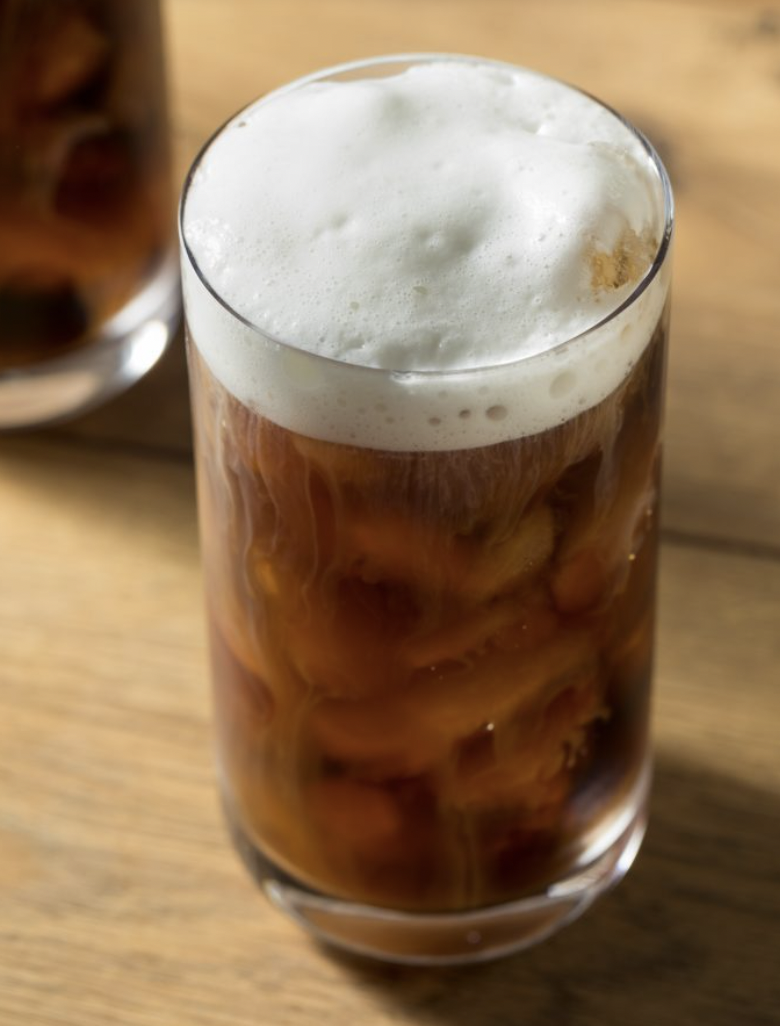
A Tea for the Times
Being an online-only business at a time when gathering around with tea is discouraged, it’s a ripe time for Tea Horse.
“Our tagline these days is to ‘think outside the teapot and chart your own tasting adventure,’” she adds. “Instead of sitting in a tea room, this is an adventure. Get outside and enjoy the outdoors.”
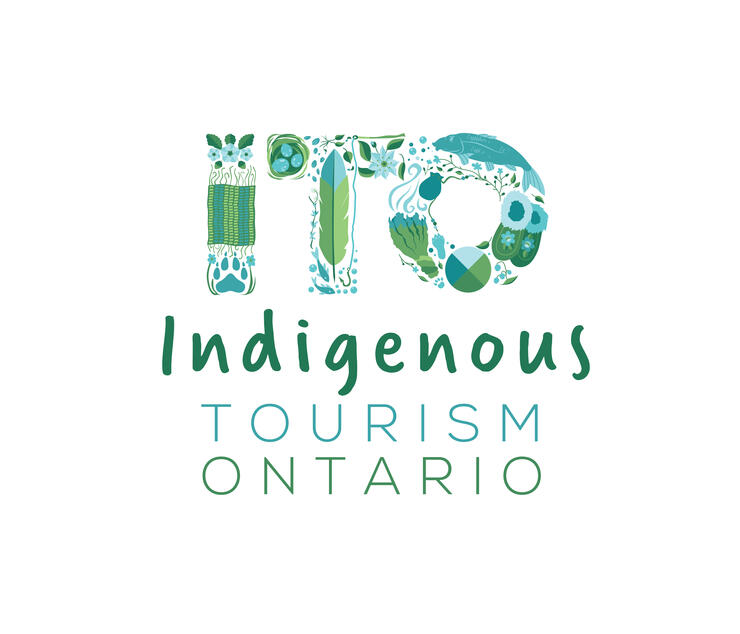
Recommended Articles
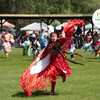
Ontario Pow Wow Calendar: 2025 Edition
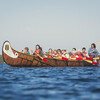
8 Indigenous Tourism Experiences To Book in 2025

Indigenous Restaurants in Ontario

8 Indigenous Experiences to Discover in North Bay

6 Indigenous-owned Accommodations in Ontario

7 Indigenous-Owned Fishing Experiences in Ontario
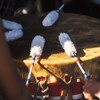
Pow Wow Road Trip
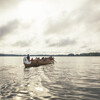
11 Indigenous-Owned Outdoor Adventure Companies in Ontario
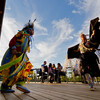
13 Indigenous-Owned Businesses to Visit on National Indigenous People's Day—and Every Day

A Guide to Visiting the Kay-Nah-Chi-Wah-Nung Historical Centre
Indigenous Theatre on Manitoulin Island
